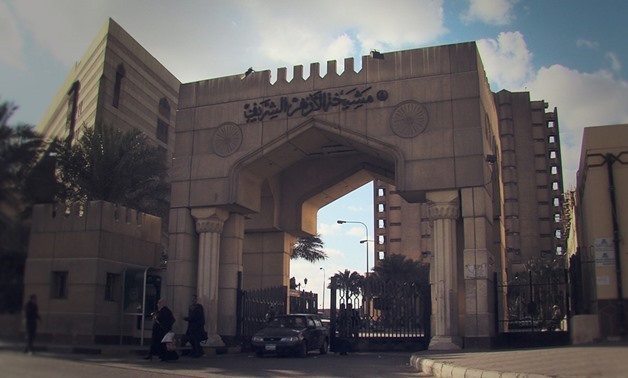
File Photo - Al-Azhar Sheikdom
CAIRO – 14 February 2019: Egypt's Al-Azhar announced raising the number of educational programs and scholarships granted to African students by 100 percent.
According to a statement issued by Grand Imam of Al-Azhar Ahmed al-Tayeb on Feb. 12 , this decision comes in conjunction with Egypt’s receiving the chairmanship of the African Union Assembly of Heads of State and Government.
For more than 1,000 years, Al-Azhar has been one of Egypt’s main ‘Soft powers’. Students from all over the world and especially from Africa flock annually as they receive different scholarships in all of Al-Azhar’s faculties and institutes, according to Tayeb.
Up to 32,000 students come to Al-Azhar every year from 113 different countries; around 4,000 of the students come per full scholarships. According to recent statistics mentioned by the statement, Al-Azhar welcomes 6,108 students from the MENA region, 16,384 students from Asia, 405 students from America and Australia and 4,748 students from Africa.
More branches of the World Association for Al-Azhar Graduates will be established in several African countries, especially those suffering from terrorism, according to Tayeb. He explained that these branches will be offering educational, cultural and social services to Al-Azhar graduates, who are seen as Al-Azhar's ambassadors in their countries.
Furthermore, President of Al-Azhar University Mohamed al-Mahrasawy announced on Feb. 12 in a press conference that a bureau of the Association of African Universities (AAU) will be inaugurated on the campus of Al-Azhar University on March 12. The university will also organize the AAU’s Olympics taking place on March 10-15.
The association was founded in 1967 and is headquartered in Ghana. The AAU has 380 member and associate member institutions that represent 46 African states.
Also, Al-Azhar University will host the Conference of Rectors, Vice Chancellors and Presidents of African Universities (COREVIP) on July 8-11.
In January, Egypt’s Minister of Health Hala Zayed unveiled an Egyptian initiative to treat African people from Hepatitis C, starting with the Nile Basin countries that have an estimated 3.7 million hepatitis C patients, representing 30 percent of the total number of infected people in Africa.
During a meeting with members of the Parliament's African Affairs Committee headed by Tarek Radwan, Zayed said that the ministry currently works to help the Nile Basin countries cure the cases that test positive for Hepatitis C and will send medical personnel even from the private sector to these states.
This initiative will help spread Egyptian medicine and open markets for it, Zayed said, adding that it offers an opportunity to export medicine to Africa and an opportunity to treat 1 million people infected with the blood-borne disease in the Nile Basin countries.
Zayed also urged benefiting from the Egyptian medical initiatives, including the "100 Million Seha (health)" campaign, and the campaign to eliminate waiting lists. She expressed keenness to launch similar initiatives in the Nile Basin countries.
The minister confirmed that Cairo provides treatment for Hepatitis C patients for only $50-$120 per patient, asserting that treatments in other countries can cost the patient between $28,000 and $80,000. She also stressed she is contacting the international bodies such as the World Health Organization (WHO) to cover the cost of medicine in these countries.
On February 10, President Abdel Fatah al-Sisi received the chairmanship of the African Union Assembly of Heads of State and Government from Rwandan counterpart Paul Kagame for a one-year term. The ceremony took place during the opening of the 32nd Ordinary Session of the Assembly of the African Union in Addis Ababa, Ethiopia.
Additional reporting by Loai Ali

Comments
Leave a Comment